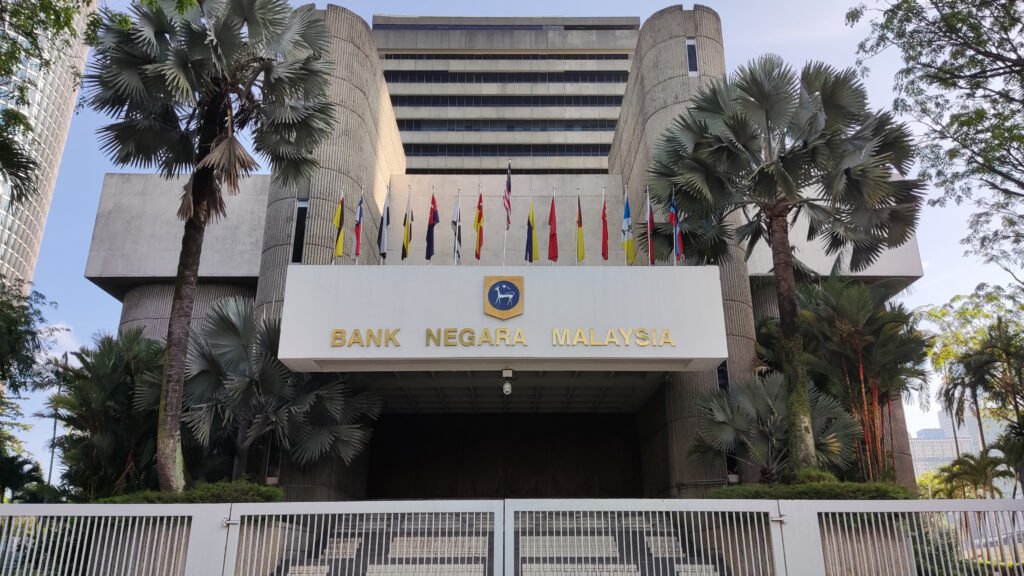
The Malaysian economy advanced by 5.9% in the second quarter of 2024 (1Q 2024: 4.2%). The growth is driven by stronger domestic demand and further expansion in exports. Household spending increased amid sustained positive labour market conditions and larger policy support. Investment activity was underpinned by continued progress in multi-year projects and capacity expansion by firms. Exports improved amid higher external demand and positive spillovers from the global tech upcycle. Most supply-side sectors registered higher growth. The manufacturing sector was supported by broad-based improvement across all clusters, particularly in electrical and electronics (E&E). The services sector recorded strong growth, driven by consumer and business-related subsectors. On a quarter-on-quarter seasonally-adjusted basis, the economy expanded by 2.9% (1Q 2024: 1.5%).
Inflation edged slightly higher to 1.9%
Headline and core inflation averaged 1.8% in the first half of 2024. During the quarter, both headline and core inflation edged higher to 1.9% (1Q 2024: 1.7% and 1.8% respectively). This was largely driven by higher housing and utilities inflation at 3.1% (1Q 2024: 2.6%). The share of Consumer Price Index (CPI) items recording monthly price increases was higher at 49.4% during the quarter (1Q 2024: 44.2%; second quarter average from 2011-2019: 43.9%), reflecting in part the price adjustments during the festive season and several policy measures by the Government during the period.
Ringgit appreciated against the US dollar and on a NEER basis
For the year until 13 August 2024, the ringgit has appreciated by 3.1% against the US dollar. On a nominal effective exchange rate (NEER) basis, the ringgit also appreciated by 5.3%. This was in part due to growing expectations among financial market participants on US policy rate cuts, which has alleviated pressure on regional currencies, including the ringgit.
The coordinated initiatives by the Government and BNM with the Government-Linked Companies (GLCs) and Government-Linked Investment Companies (GLICs) alongside engagements with corporates, exporters and investors continue to provide support to the ringgit. These efforts have resulted in greater and more consistent flows into the foreign exchange market. The daily average foreign exchange (FX) trading volume has risen to USD18.0 billion during the period of 26 February – 13 August 2024 (2 January – 23 February 2024: USD15 billion). The bid-ask spread is also narrower, indicating improved liquidity in the domestic FX market.
Banks continue to lend
Credit growth to the private non-financial sector increased to 5.4% (1Q 2024: 5.2%), following higher growth in outstanding business loans (5.6%; 1Q 2024: 5.1%) and outstanding corporate bonds (3.4%; 1Q 2024: 3.2%). Outstanding business loan growth increased amid higher growth in both investment-related and working capital loans. By sector, the stronger growth was recorded in the construction and manufacturing sectors. For households, outstanding loan growth was sustained across most loan purposes (6.2%; 1Q 2024: 6.2%). Demand for household loans remained forthcoming, particularly for mortgages.
Malaysia’s economic growth to be supported by firm domestic demand and further improvement in external demand
Bank Negara Malaysia Governor Dato’ Seri Abdul Rasheed Ghaffour says, “Growth in the second half of 2024 will be driven by domestic spending with continued strong support from external demand.”
On the domestic front, household spending will be underpinned by continued employment and wage growth as well as policy measures. Investment activities will be driven by progress in multi-year projects across private and public sectors. Catalytic initiatives announced in national master plans and the higher realisation of approved investments are also key drivers for investment activities. Externally, the ongoing global tech upcycle and continued strong demand for non-electrical and electronics goods are expected to lift exports. Improvement in tourist arrivals and spending are expected to continue. Upside risks to growth include greater spillover from the tech upcycle, robust tourism activities, and faster implementation of existing and new investment projects. Downside risks to Malaysia’s growth prospects stem from a downturn in external demand, an escalation in geopolitical conflicts and lower-than-expected commodity production.
Inflation to remain within the forecast range in 2024
Headline and core inflation are expected to edge higher in 2H 2024 mainly due to the rationalisation of diesel subsidies. However, the impact will remain manageable given mitigation measures by the Government to minimise cost impact to businesses. For the rest of the year, upside risks to inflation depend on the extent of the spillover effects from further domestic policy measures on subsidies and price controls to broader price trends, as well as global commodity prices and financial market developments. Overall, headline and core inflation for the year are projected to remain within the forecast ranges of 2.0% ‒ 3.5% and 2.0% ‒ 3.0% respectively.




